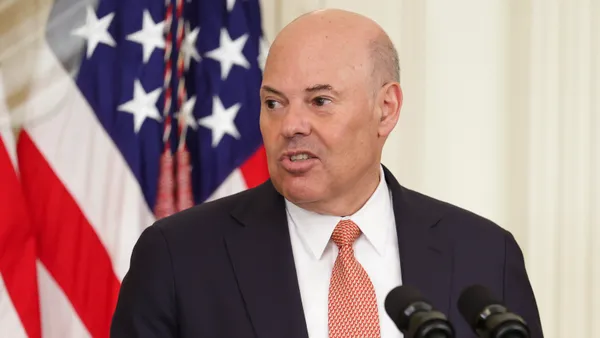Dive Brief:
- Frequency Car Audio and the two brothers who own the three companies that separately own and operate the three store locations were not the joint employer of a man who sued them, the 5th Circuit has ruled. (Pearson v. Frequency Car Audio, et al., No. 17-20769 (5th Cir., Nov. 2, 2018)).
- William Pearson, a former installer for the Houston, Texas-area business that installs and repairs car audio systems, sued, claiming that the work he did at his supervisors' homes should be treated as work for their business. Pearson also said that, although he had agreed to be paid $1,000 a week, half by check and half in cash, he didn't always receive the cash payments. Pearson claimed underpayment of overtime under the Fair Labor Standards Act (FLSA), unpaid regular wages and other FLSA violations in his lawsuit. The trial court determined he was owed $292.70 that one of the owners admitted was owed; $5000 in regular wages mostly because, as the court noted, Frequency's books were incomplete, as well as $6250 in attorneys' fees.
- The appeals court affirmed the trial court's decision. The court said it would not disturb the lower court's decision that Frequency was Pearson's only employer under the FLSA as the evidence showed that Frequency and the two brothers who owned the business were not Pearson's joint employers.
Dive Insight:
Multiple employers can be liable to one employee under the FLSA. But, courts remain split on how best to define "joint employment" and the tests for joint employment vary under different laws as well. Under the FLSA, when employers are not completely disassociated, the employers may be jointly responsible for compliance with the federal law as it relates to overtime pay. When the 4th Circuit adopted this test, it was criticized by the business community as setting too low a bar. The 7th Circuit uses an "economic realities" test in Title VII discrimination cases where the most important factor is the extent of the employer's control and supervision over the worker.
The National Labor Relations Board (NLRB) has been trying to get rid of an Obama-era joint employer standard that expanded the definition of "joint employer" to companies that have "indirect control" over workers. Employers didn't like that standard, saying the ruling threatened well-established franchising relationships, among others. The NLRB has proposed a new joint-employer standard under which an employer may be jointly liable only if the two employers share or co-determine the employees' essential terms and conditions of employment, such as hiring, firing, discipline, supervision and direction.
DOL says it will tackle the issue in December under the FLSA via a notice of proposed rulemaking in order to "clarify the contours of the joint employment relationship."












